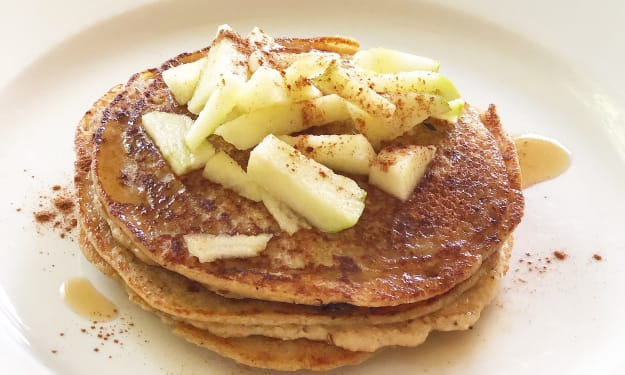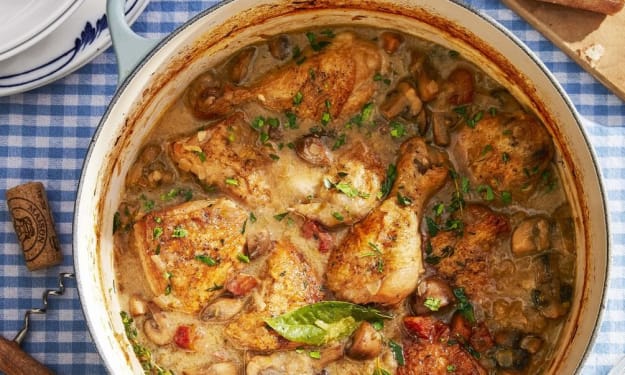Food & Mental Health
Can what we eat affect our emotional wellbeing?

Disclaimer: Diet is not a fix all for feeling sad, and sadness or depression can be an appropriate response to things that do happen in our daily lives. This piece is aimed towards the ongoing chemical imbalance which results in depression and how diet may help.
What foods can make you happy?
After eating fresh fruit, a hearty plant-based meal or drinking a fresh glass of orange juice, do you instantly feel better? I know I do, and I have always been curious as to why. What are these magical, revitalising and healing properties that fruits and vegetables seem to possess?
A study evaluating the ‘association between the consumption of major food categories and the risk of new depression’ found that eating fruit 3 times a week was associated with a 34% drop in depressive symptoms than those who did not. For vegetables, it meant 62% lower odds than those that did not consume vegetables for the entire week. This study controlled for other factors that can make you sad, including socioeconomic status. (1)
Intakes of fruits, vegetables were found to be inversely associated with depression. (2)
So basically the more whole foods you eat, the lower your depression is! Those in the study that ate the most whole foods had about 26% lower depression and those who ate the least had 58% higher depression. (3)
Why is this?
Scientists believe it may be the polyphenols present in fruits and vegetables because they “battle oxidative stress and stimulate the activation of molecules that aid in synaptic plasticity, a process that underlies cognitive function”.
Synapses are essentially where happy neurotransmitters go to do their jobs, synapses such as dopamine and serotonin. At least 2 polyphenols in particular, Quercetin and Luteolin, have been showed to inhibit the breakdown of Serotonin and Dopamine. (4)
That breakdown is done by Monoamino Oxidase (MAO), one study (5) found that majorly depressed people have on average 34% higher levels of Monoamino Oxidase.
Results show that Quercetin and Luteolin have been shown to inhibit Monoamino Oxidase. Note: Quercetin does require vitamin C in order to enter the cells. Quercetin gave a 15% lowering of MAO activity and Luteolin inhibited it by about 20%. (6)
Quercetin is notably high in vegetables such as capers, arugula, cilantro, red lettuce, and kale. Luteolin can be found in oregano and celery seeds but it’s also present in foods such as capsicums, thyme, rosemary, and lemons. (7)
As previously noted, Vitamin C is required for Quercetin to enter the cells, however, it is also a co-factor in the production of dopamine, and a diet containing a variety of fruits and vegetables will ensure adequate Vitamin C levels are being consumed for these processes to take place. (8)
What foods make us sad?
Arachidonic Acid is an omega 6 polyunsaturated fatty acid which is found in animal foods. Foods high in ACA include chicken, eggs, beef, sausage, etc. (9)
How can this relate to brain inflammation? Well, ACA produces pro-inflammatory prostaglandins, leukotrienes, and thromboxanes.
After entering tissues, granulocytes promote the switch of arachidonic acid-derived prostaglandins and leukotrienes to lipoxins, which initiate the termination sequence. (10)
A study showed that higher levels of ACA were associated with a higher likelihood of suicide risk and 47% increased risk in major depression. (11)
What happens to people on a zero ACA diet?
One study claimed that “restricting meat, fish, and poultry improved domains of short-term mood state in modern omnivores”.
Another study showed that putting people on a vegan diet dropped inflammation markers by 30%. (12)
High protein animal meats contain a wide variety of amino acids that are competing to cross the blood-brain barrier, however tryptophan usually gets left behind. There are foods that do raise tryptophan and they are important because tryptophan is Serotonin's essential amino acid precursor, therefore you need tryptophan to make serotonin, one of our happy neurotransmitters.
When you eat carbohydrates, you get a rise in tryptophan levels and as the tryptophan generally makes up a greater amount of the amino acids present, it reduces competition with other amino acids.
One study put people on either a high carbohydrate or low carbohydrate diet for a year, the high carb group did better notably better in categories such as anxiety, hostility, and fatigue. Looking at emotional states and PMS, a carbohydrate-rich meal improved depression, tension, anger, confusion, sadness, fatigue, alertness and calmness among patients with PMS. This is attributed to the serotonin boost we gain after carbohydrate intake. (13)
You don’t necessarily need to be eating a high carbohydrate diet, however, there is a minimum carbohydrate amount you should be consuming to receive these benefits. I would also suggest sticking with whole carbohydrates rather than refined carbohydrates as they have a more stable, extended delivery of sugars, without those blood sugar spikes and crashes. These may include whole foods such as quinoa, bananas, oats, sweet potatoes, beetroot, oranges, blueberries, apples, kidney beans, and chickpeas, just to name a few.
In summary, feeling sad or depressed at different times in life is completely natural, and there is no shame in using medicine to help you feel your absolute best, however it is important to take into consideration all of your lifestyle factors as well, as there is power in knowledge and we really are what we eat.
Wishing you longevity and happiness!
References
1. Https://doi.org/10.1017/S1368980011002977
2. https://www.ncbi.nlm.nih.gov/pmc/articles/PMC3520090/pdf/nihms-416644.pdf
3. https://www.ncbi.nlm.nih.gov/pmc/articles/PMC2801825/
4. https://www.ncbi.nlm.nih.gov/pmc/articles/PMC3355196/pdf/nihms348384.pdf
5. https://www.ncbi.nlm.nih.gov/pubmed/17088501
6. https://reader.elsevier.com/reader/sd/E8260785936E88AC962465A677372D3465B49
7. https://www.ars.usda.gov/ARSUserFiles/80400525/Data/Flav/Flav_R03.pdf
8. https://onlinelibrary.wiley.com/doi/epdf/10.1111/bjhp.12113
9. https://epi.grants.cancer.gov/diet/foodsources/fatty_acids/table4.html
10. https://onlinelibrary.wiley.com/doi/full/10.1111/j.1471-4159.2006.04371.x
11. https://www.ncbi.nlm.nih.gov/pmc/articles/PMC4239694/pdf/nihms631389.pdf
12. https://www.researchgate.net/publication/271529631_C-reactive_protein_response_to_a_vegan_lifestyle_intervention
13. https://www.ajog.org/article/0002-9378(89)90671-6/pdf
About the Creator
Jackie Green
Full time Research & Development Manager (sports supplements)
Plant based Nutritionist
Passionate about sharing unbiased nutrition information
Wishing you happiness, health and longevity! :)






Comments
There are no comments for this story
Be the first to respond and start the conversation.